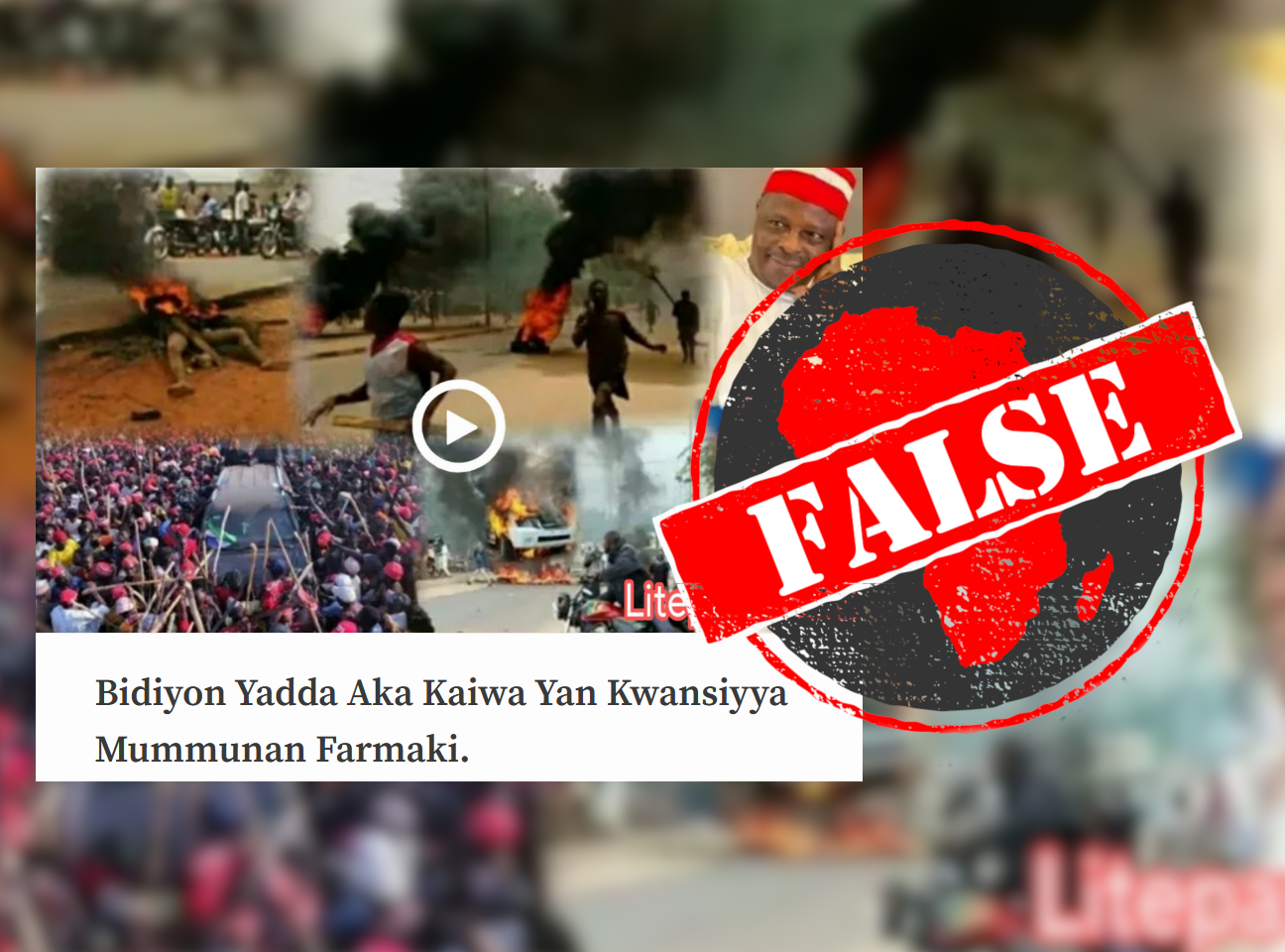A Facebook post links to a video published on a blog with the claim it shows supporters of New Nigeria People’s Party (NNPP) presidential candidate Rabiu Kwankwaso being attacked by supporters of his rival, Abdullahi Ganduje.
Nigeria held presidential and parliamentary elections on 25 February 2023.
Ganduje is the governor of Kano state in northern Nigeria. He served as Kwankwaso’s deputy when the candidate was the state’s governor. In 2015, he succeeded him as governor of Kano state.
Kwankwaso declared his intention to contest the position of president on the NNPP ticket in April 2022.
There has been speculation about a rift between the two after Ganduje became governor in 2015. Ganduje has responded to the rumour, saying he had a “very good rapport with the former governor”.
But the relationship between the two still doesn’t seem cordial. In November 2022, Ganduje challenged Kwankwaso to test his popularity in Kano by holding a political rally.
The video’s cover screen shows photos of Ganduje and Kwankwaso, as well as photos of violence and unrest.
Links to the video have also been posted here and here on Facebook.
But does it really show Ganduje’s supporters attacking Kwankwaso’s supporters?

Clickbait for ad money
We tapped on the link, and discovered that the blog site has no “about” section or contact details. This raises questions about its authenticity.
What appeared to be a video embedded on the site did not launch when we tapped the play button. Instead, it redirected us to web pages full of adverts.
And no credible Nigerian news organisations have reported any fight between the two politicians’ supporters.
The link is simply clickbait to earn ad revenue.
Republish our content for free
For publishers: what to do if your post is rated false
A fact-checker has rated your Facebook or Instagram post as “false”, “altered”, “partly false” or “missing context”. This could have serious consequences. What do you do?
Click on our guide for the steps you should follow.
Publishers guideAfrica Check teams up with Facebook
Africa Check is a partner in Meta's third-party fact-checking programme to help stop the spread of false information on social media.
The content we rate as “false” will be downgraded on Facebook and Instagram. This means fewer people will see it.
You can also help identify false information on Facebook. This guide explains how.



Add new comment